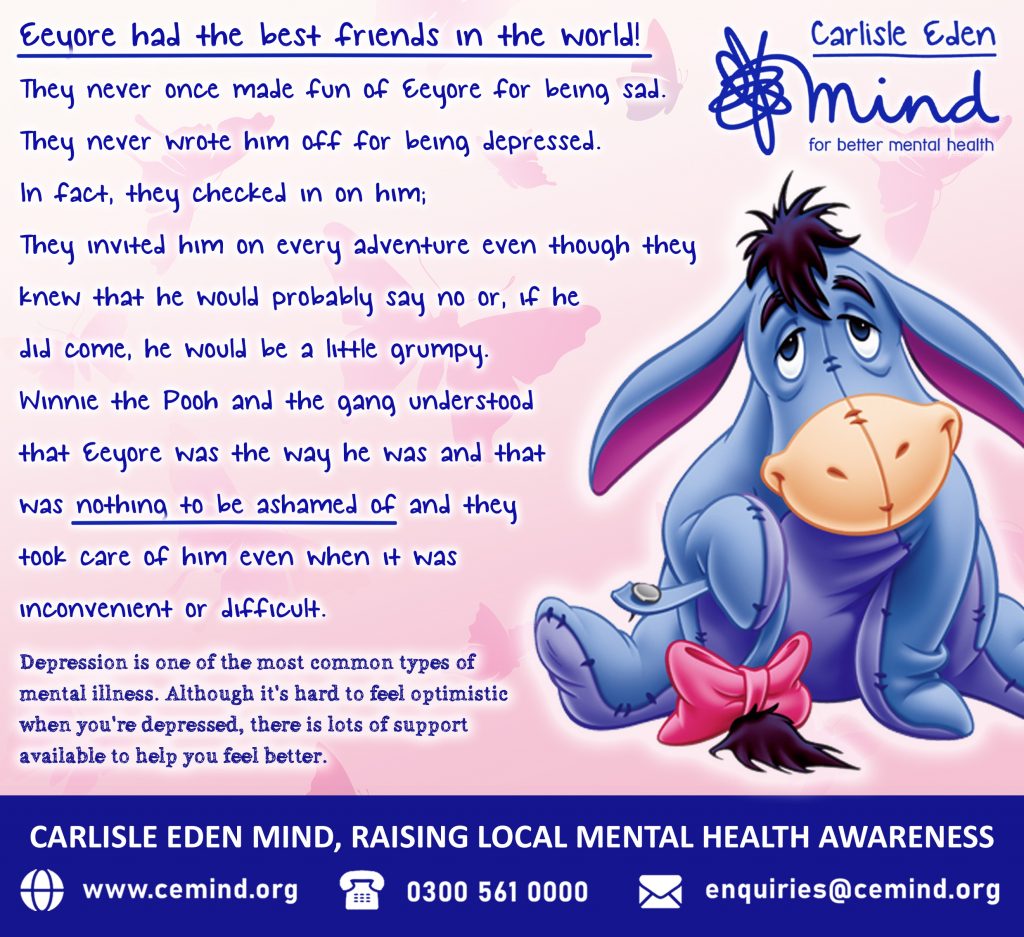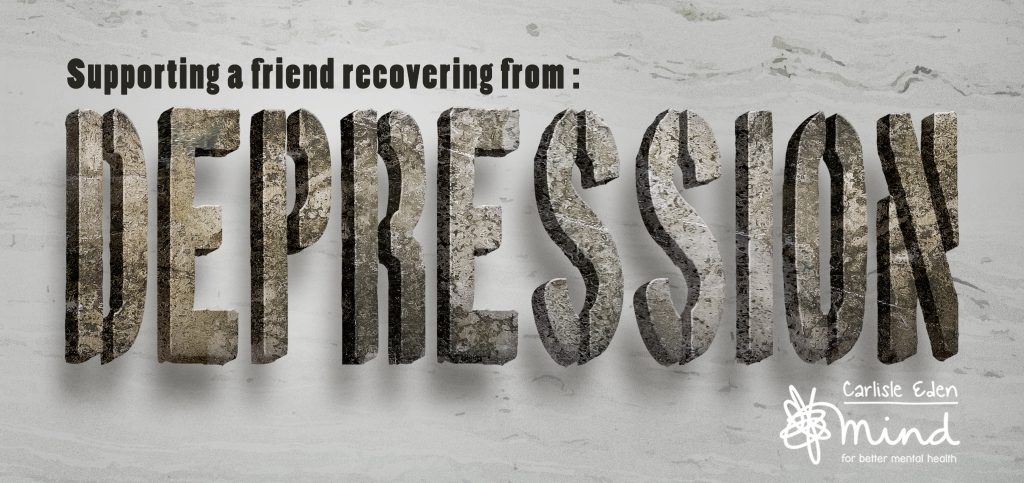
How can friends and family help?
This information is for friends and family who want to support a friend or loved one recovering from depression.
-It can be really worrying when someone you care about about is going through a difficult time. Take a look at our suggestions on how to help someone currently struggling with a specific mental health diagnosis here: Helping Someone With A Specific Mental Health Diagnosis – Carlisle Eden Mind (cemind.org)
The support of friends and family can play a very important role in someone recovering from depression. We have advice to help you support a friend or loved one recovering from depression – and how to look after your own wellbeing too.
Here are some suggestions for how you can help:
- Support your friend or family member to get help. You can’t force anyone to get help if they don’t want it, so it’s important to reassure your loved one that it’s OK to ask for help, and that there is help out there. See our pages on how to support someone else to seek help for their mental health for more information.
- Be open about depression. Lots of people can find it hard to open up and speak about how they’re feeling. Try to be open about depression and difficult emotions, so your friend or family member knows that it’s OK to talk about what they’re experiencing.
“The best things that friends and family can do is simply listen. They often don’t need to say anything, just being willing to listen to your problems makes you feel less alone and isolated”
- Keep in touch. It might be hard for your loved one to have the energy to keep up contact, so try to keep in touch. Even just a text message or email to let them know that you’re thinking of them can make a big difference to how someone feels.
- Don’t be critical. If you’ve not experienced depression yourself, it can be hard to understand why your friend or family member can’t just ‘snap out of it’. Try not to blame them or put too much pressure on them to get better straight away – your loved one is probably being very critical and harsh towards themselves already. Mind’s information about depression can help you learn more about it.
“Just a simple call or text asking me how I am helps.
I don’t want sympathy, just to know they are there if I need them.”
- Keep a balance. If someone is struggling, you might feel like you should take care of everything for them. While it might be useful to offer to help them do things, like keep on top of the housework or cook healthy meals, it’s also important to encourage them to do things for themselves. Everyone will need different support, so talk to your friend or family member about what they might find useful to have your help with, and identify things they can try to do themselves.
- Take care of yourself. Your mental health is important too, and looking after someone else could put a strain on your wellbeing. See our pages on coping as a carer, managing stress and maintaining your wellbeing for more information on how to look after yourself.
“Listen carefully, don’t judge and most of all, don’t say, ‘Cheer up.’
It’s just not that simple. Sometimes solutions are unnecessary, so don’t feel you have to provide one.”
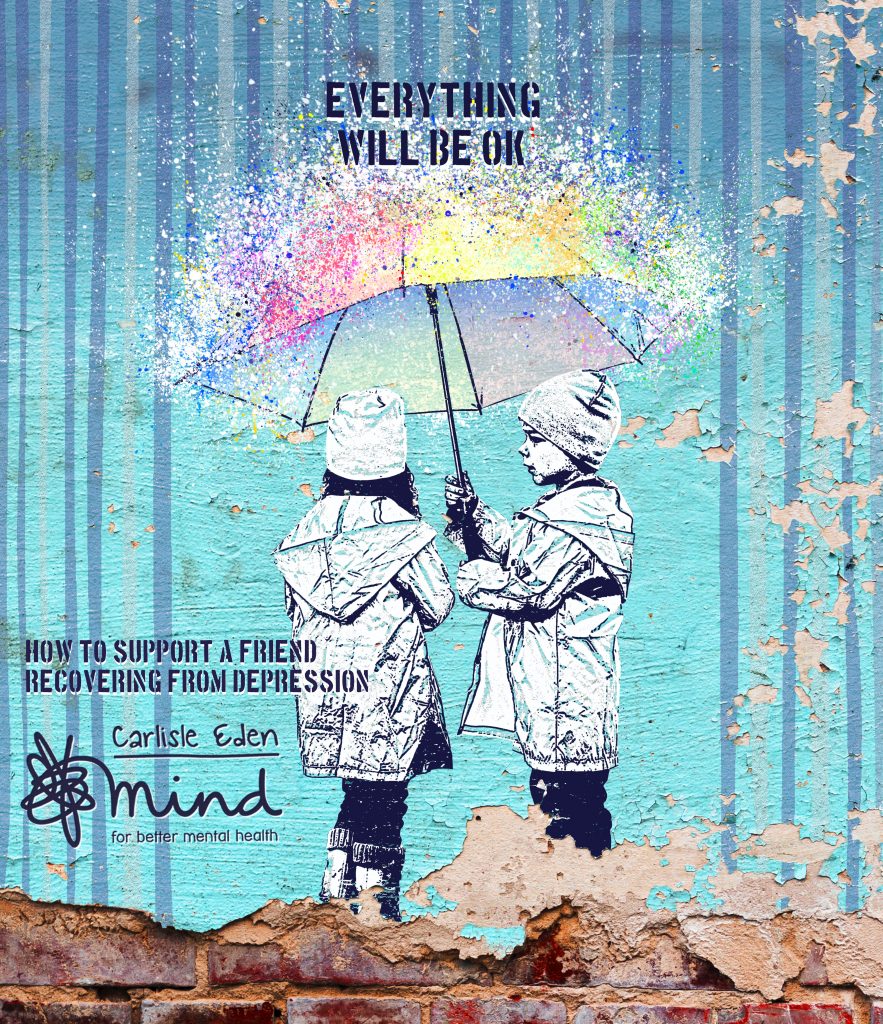
What practical support can I offer?
There are lots of practical things you can do to if you want to support a friend or loved one recovering from depression. For example:
- Look for information that might be helpful. When someone is seeking help they may feel worried about making the right choice, or feel that they have no control over their situation. Our page on making yourself heard will give you some ideas on what research you can do, and ways you can help someone think about what might work for them.
- Help to write down lists of questions that the person you’re supporting wants to ask their doctor, or help to put points into an order that makes sense (for example, most important point first).
- Help to organise paperwork, for example making sure that your friend or family member has somewhere safe to keep their notes, prescriptions and records of appointments.
- Go to appointments with them, if they want you to – even just being there in the waiting room can help someone feel reassured.
- Ask them if there are any specific practical tasks you could help with, and work on those. For example, this could include offering them a lift somewhere
- arranging childcare for them
- taking over a chore or household task.
- Learn more about the problem they experience, to help you think about other ways you could support them. Our website provides lots of information about different types of mental health problems, including pages on what friends and family can do to help in each case.
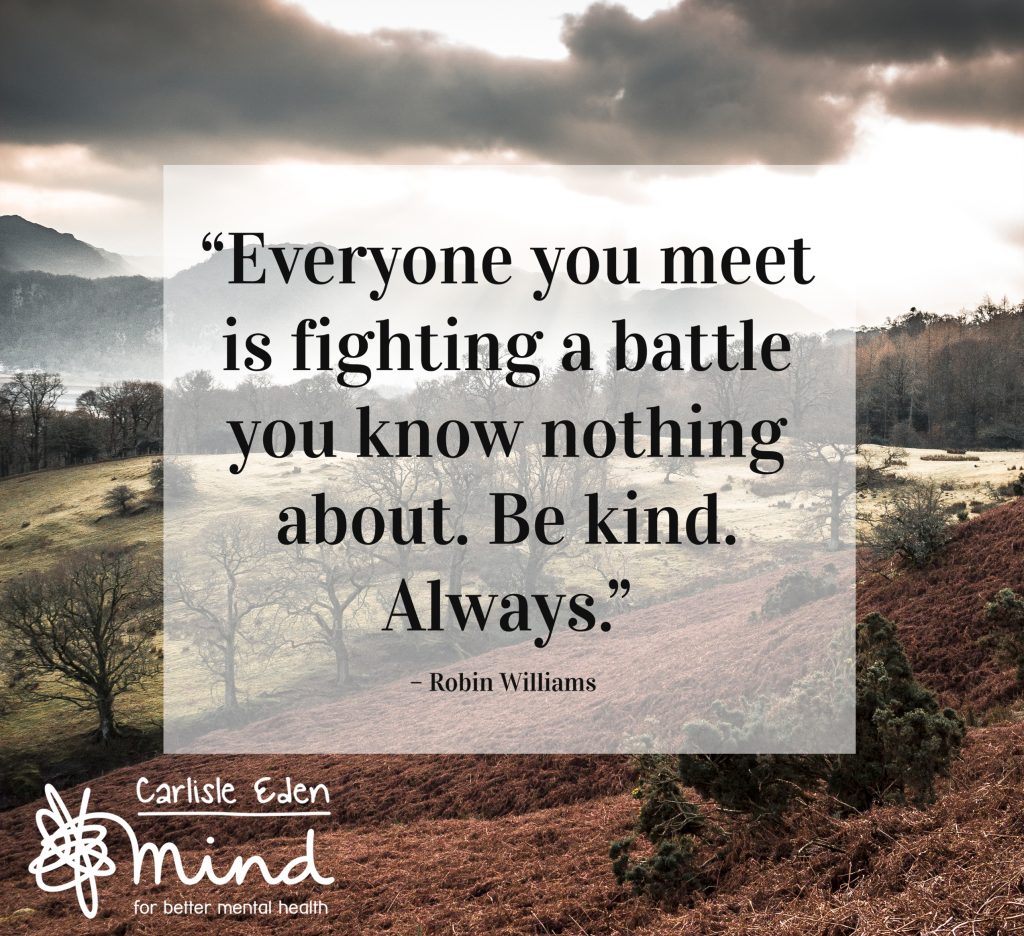
What emotional support can I offer?
If someone lets you know that they are experiencing difficult thoughts and feelings, it’s common to feel like you don’t know what to do or say – but you don’t need any special training to show someone you care about them. Often just being there for someone and doing small things can be really valuable. For example:
- Listen. Simply giving someone space to talk, and listening to how they’re feeling, can be really helpful in itself. If they’re finding it difficult, let them know that you’re there when they are ready.
- Offer reassurance. Seeking help can feel lonely, and sometimes scary. You can reassure someone by letting them know that they are not alone, and that you will be there to help.
- Stay calm. Even though it might be upsetting to hear that someone you care about is distressed, try to stay calm. This will help your friend or family member feel calmer too, and show them that they can talk to you openly without upsetting you.
- Be patient. You might want to know more details about their thoughts and feelings, or want them to get help immediately. But it’s important to let them set the pace for seeking support themselves.
- Try not to make assumptions. Your perspective might be useful to your friend or family member, but try not to assume that you already know what may have caused their feelings, or what will help.
- Keep social contact. Part of the emotional support you offer could be to keep things as normal as possible. This could include involving your friend or family member in social events, or chatting about other parts of your lives.
“I had one friend who helped me by just listening and never judging.
Without him my recovery time would have been much longer.”
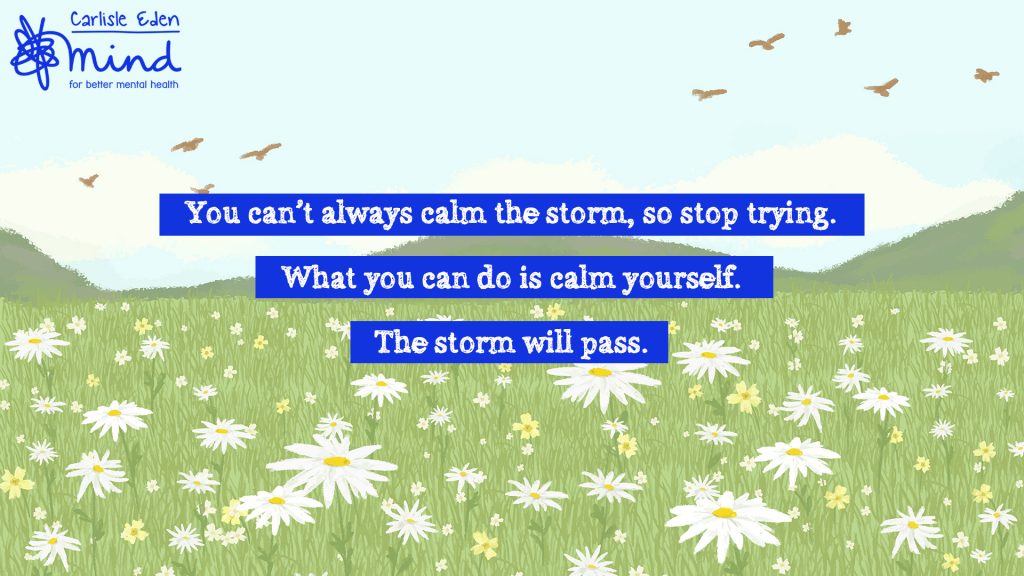
How can I look after myself?
Helping support someone recovering from depression can be challenging. Making sure that you look after your own wellbeing can mean that you have the energy, time and distance to help someone else. For example:
- Take a break when you need it. If you’re feeling overwhelmed by supporting someone or it’s taking up a lot of time or energy, taking some time for yourself can help you feel refreshed.
- Talk to someone you trust about how you’re feeling. You may want to be careful about how much information you share about the person you’re supporting, but talking about your own feelings to a friend can help you feel supported too.
- Set boundaries and be realistic about what you can do. Your support is really valuable, but it’s up to your friend or family member to seek support for themselves. Remember that small, simple things can help, and that just being there for them is probably helping a lot.
- Share your caring role with others, if you can. It’s often easier to support someone if you’re not doing it alone.
This information is advice and recommendations on how to support a friend or loved one recovering from depression. If a person you care about is currently struggling with a specific diagnosis, take a look at our recommendations on: Helping Someone With A Specific Mental Health Diagnosis – Carlisle Eden Mind
